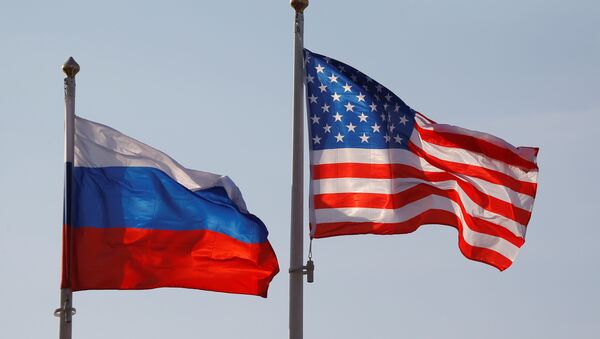"The meeting between Presidents Putin and Trump is enormously significant but not for any concrete proposals that may have been discussed or agreed upon," McAdams said on Friday. "The importance of the meeting is to establish a face-to-face relationship between the two presidents in the hope that the US side will pull back from its confrontational approach to Russia and that President Trump will now begin to implement his campaign promise of ‘getting along with Russia’."
Earlier on Friday, Putin and Trump held on the sidelines of the G20 summit in Hamburg, Germany a first ever personal meeting, which lasted for more than two hours.
Among other issues, the two leaders discussed Ukraine. Russian Foreign Minister Sergey Lavrov said after the talks that Moscow and Washington agreed to set up a communication channel to advance the settlement in Ukraine on the basis of Minsk agreements.
McAdams said he would possibly be a more optimistic about Washington seeking a solution in Ukraine if the US public did not learn today that President Trump's new special envoy for Ukraine is Kurt Volker, head of the neoconservative and anti-Russia McCain Institute.
The institute was founded by the US senator from Arizona, John McCain.
Secretary of State Rex Tillerson announced the appointment of Volker, who served previously as US permanent representative to NATO, as US Special Representative for Ukraine Negotiations. Volker will spearhead US efforts to move forward on the implementation of the Minsk agreements.
"Again, the solution to the Ukraine problem is for the United States to disengage and allow the countries involved to work out the issues. Ultimately, the people of eastern Ukraine should be able to decide their own fate," McAdams said.
In February 2015, the warring parties to the Ukrainian conflict in Donbas signed the Minsk peace accords in order to cease fire in the crisis-torn region. Germany, France, Russia and Ukraine helped negotiate the Donbas ceasefire. The truce, however, has been repeatedly breached, with Kiev forces and Donbas militia accusing each other of violating it.
Relations between Russia and the United States deteriorated in 2014, when Washington and its allies accused Moscow of fueling the Ukrainian crisis, and imposed several rounds of sanctions against Russia.
Russia has repeatedly refuted Western allegations and warned that imposing restrictions is counterproductive and can lead to destabilization of the region and the world.



